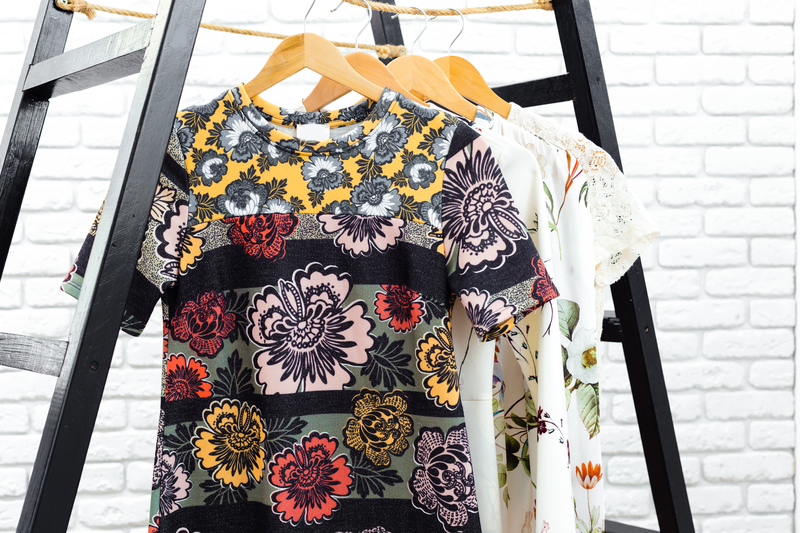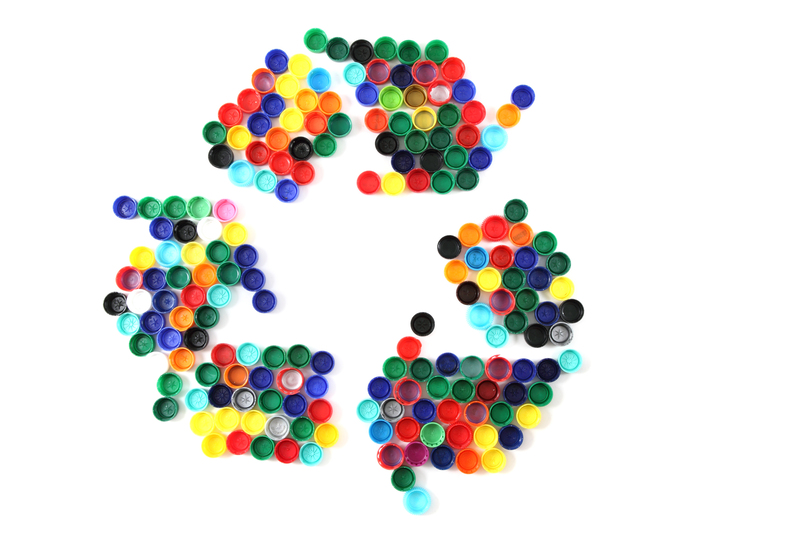Achieve Harmony: Stress Relief Through Strategic De-cluttering
In our fast-paced, modern world, achieving harmony and reducing stress can sometimes feel like a distant dream. Often, the root cause of our stress lies closer to home than we realize--literally. Our physical environment has a profound impact on our emotional and mental health. Cluttered spaces can be a major source of tension, distraction, and overwhelm. In this comprehensive guide, we'll explore how you can achieve harmony and lasting stress relief through strategic de-cluttering, using proven methods to transform your home--and your life.

Why Clutter Causes Stress
Clutter is more than just a visual eyesore--it can be a significant source of anxiety and tension. Numerous psychological studies have shown a strong link between environmental clutter and increased levels of cortisol, the stressful hormone. When your home or workspace is disorganized, your brain must process more sensory information, leading to feelings of overwhelm and fatigue.
- Visual Overload: A cluttered environment bombards your senses, making relaxation and concentration difficult.
- Decision Fatigue: Clutter increases the number of choices and decisions you have to make daily, tiring your mind.
- Emotional Drain: Piles of old items can trigger guilt or regret, preventing emotional unwinding.
By embracing a process of strategic de-cluttering, you create a calm, inviting environment that encourages relaxation, focus, and happiness. Read on to discover how decluttering is one of the most overlooked yet effective ways to achieve harmony and relieve stress.
The Science Behind Strategic De-cluttering
Before introducing step-by-step strategies, let's quickly review why removing clutter is so effective for stress relief. According to experts in environmental psychology, strategic de-cluttering alters the way our brains process information and contributes to better mental health.
- Reduces Stress Hormones: Studies show that people living in tidy spaces have significantly lower cortisol levels.
- Improves Sleep: A serene bedroom free of clutter promotes deeper, more restorative sleep.
- Boosts Productivity: Clear surroundings enhance your ability to focus, concentrate, and work creatively.
- Inspires Positive Emotions: Orderly spaces foster feelings of satisfaction, gratitude, and joy.
In short, strategic de-cluttering is a science-backed method for restoring both your mental balance and your physical environment.
Principles of Strategic De-cluttering for Stress Relief
1. Set Clear Intentions
The first step in embracing decluttering for harmony is setting clear and achievable intentions. Rather than approaching decluttering as a chore, view it as a journey to inner peace.
- Ask Yourself Why: Do you want a more peaceful home? Fewer distractions for work? Less anxiety?
- Visualize Results: Imagine how you'd feel living in a serene, well-organized space.
- Commit to Positive Change: Remind yourself that each removed item brings you closer to a harmonious life.
2. Tackle One Space at a Time
Decluttering your entire home at once can be daunting. Strategic de-cluttering is about working methodically to avoid overwhelm. Choose a single room or even a small area--like a countertop or drawer--to start.
- Small Steps Lead to Success: Completing manageable tasks boosts your confidence and keeps motivation high.
- Create a Decluttering Schedule: Dedicate a specific time each week or day for your de-cluttering efforts.
3. Use the 'Keep, Donate, Discard' Method
One of the most effective strategies for stress reduction through clutter control is the classic three-box method:
- Keep: Items you use regularly or that bring genuine joy.
- Donate: Belongings in good condition that you no longer need but could help others.
- Discard: Broken, worn-out, or obsolete items.
As you sort, ask yourself honest questions: When did I last use this? Does this serve a purpose? Does it spark positive feelings?
4. Organize What Remains
After decluttering, organization is key for lasting stress relief. Efficient storage solutions, designated areas for similar items, and clear labeling can make maintaining order much easier.
- Invest in Storage: Baskets, bins, shelves, and organizers streamline your space and make upkeep effortless.
- Designate Zones: Assign specific spots for everything, from paperwork to pantry staples.
By taking these decluttering strategies for harmony to heart, you can create a home that's easy to maintain and a true sanctuary from the chaos of daily life.
Decluttering for Specific Stress-Prone Areas
Not all areas of the home contribute equally to our stress levels. Certain spaces--like entryways, kitchens, bedrooms, and home offices--tend to become stress hotspots. Here's how to strategically de-clutter these stress zones for maximum harmony:
Entryway
- Create a Drop Zone: Use hooks, baskets, or shelves for keys, bags, and shoes to prevent piles from forming.
- Limit What Comes In: Only keep essential items at the entryway to avoid overcrowding.
Kitchen
- Clear Countertops: Store small appliances you rarely use to open up space and simplify cleaning.
- Purge Pantry: Regularly check for expired or unused foods to prevent overflow.
- Organize Cabinets: Group like items and use shelf risers or turntables for better visibility.
Bedroom
- Streamline the Closet: Donate clothes you no longer love or wear.
- Nightstand Reset: Keep only essentials like a lamp and book--avoid letting clutter accumulate.
- Under-Bed Storage: Use containers for off-season clothes or extra linens, but avoid cramming unnecessary items.
Home Office
- Paper Management: Go digital when possible and use drawers for essential paperwork.
- Tidy Desk Policy: At the end of each workday, spend five minutes clearing your desk.
- Limit Visual Distractions: Keep only a few meaningful decorations to boost focus and calm.
By addressing these key areas, you'll begin to notice immediate improvements in both your stress levels and your enjoyment of home life.
The Minimalist Mindset: Less Is More
Strategic de-cluttering naturally leads to a minimalist mindset--a philosophy based on the idea that having less can help you live more. Minimalism doesn't require living out of a suitcase or owning next to nothing. Rather, it's about being intentional about what you keep, using decluttering for balance and tranquility.
- Quality Over Quantity: Choose to keep items that are meaningful, high-quality, and useful.
- Mindful Acquisition: Pause before making new purchases to avoid future clutter build-up.
- Celebrate Empty Spaces: Letting rooms "breathe" can feel refreshing and clean.
Minimalist spaces aren't just visually appealing--they foster peace of mind, resilience, and an ongoing sense of harmony.
Emotional and Mental Benefits of Strategic De-cluttering
The benefits of strategic de-cluttering for stress relief go far beyond the physical changes in your environment. You'll experience emotional and psychological rewards as well:
- Sense of Accomplishment: Completing even a small decluttering project provides a boost of energy and confidence.
- Improved Clarity: A neat environment allows your mind to focus, leading to better decisions and creativity.
- Enhanced Mood: With less visual chaos, anxiety decreases and joy increases.
- Greater Control: Taking charge of your surroundings can leave you feeling empowered during stressful times.
- Stronger Relationships: Clutter-free common spaces foster better family harmony and reduce domestic tension.
*Imagine waking up each day in a calm, clean, supportive environment--your home becomes a haven for rest, reflection, and connection.*
Maintaining Harmony: Keeping Clutter at Bay
Once you've achieved a harmonious, clutter-free environment, the next challenge is to maintain it. Ongoing clutter control is simple when approached with regular, small habits:
- Declutter Regularly: Set a reminder every month to review and clear out unnecessary items.
- Embrace the 'One In, One Out' Rule: For every new item you bring home, consider removing another.
- Practice Mindfulness: Check in with your mindset--are you accumulating things because of stress or genuine need?
- Get the Family Involved: Teach children and partners the value of tidy, stress-relieving spaces.
With time, these positive habits will become second nature, enabling you to enjoy a continually peaceful and harmonious home.
Eco-Friendly Decluttering: Stress Relief and Sustainability
An additional benefit to strategic de-cluttering is that it can be sustainable. Eco-friendly decluttering ensures your journey to harmony doesn't come at the planet's expense.
- Donate Responsibly: Give unwanted items to reputable charities or local shelters.
- Recycle What You Can: Electronics, clothing, paper, and plastics should be recycled or upcycled whenever possible.
- Sell or Swap: Consider selling gently used items or swapping with friends rather than throwing away.
By de-cluttering consciously, you protect both your emotional well-being and the environment--a win for personal and planetary harmony.
Decluttering as a Lifelong Practice
It's important to recognize that achieving harmony through de-cluttering is an ongoing journey. Life changes, seasons shift, and our needs evolve. Maintaining a reflexive, strategic approach to clutter can help ensure you stay balanced and stress-free, no matter what life brings.
Periodic check-ins, seasonal declutters, and embracing simplicity can mitigate creeping stress and help you stay present, grounded, and joyful.

Start Your Strategic De-cluttering Journey Today
Ready to experience the transformative power of strategic de-cluttering for stress relief? Here are some actionable steps to begin:
- Create Your Vision: Write down how you want your home to feel and function.
- Set Your First Task: Choose one small area to declutter this week.
- Get Support: Invite a friend or family member to help keep you motivated.
- Celebrate Each Win: After completing each area, take a moment to appreciate your progress.
With each step, you'll feel lighter, more in control, and experience less stress. Through strategic de-cluttering, you'll move closer to a harmonious, joyful, and balanced lifestyle.
Conclusion: Unlock Lasting Harmony Through Decluttering
Clutter isn't just physical--it's emotional and mental, too. By embracing strategic de-cluttering, you create an environment where harmony, clarity, and genuine relaxation flourish. Start small, celebrate your successes, and enjoy the journey to lasting stress relief and a harmonious home. Why wait? Begin your journey and enjoy the peace that comes from living with less, so you can focus on what truly matters most.